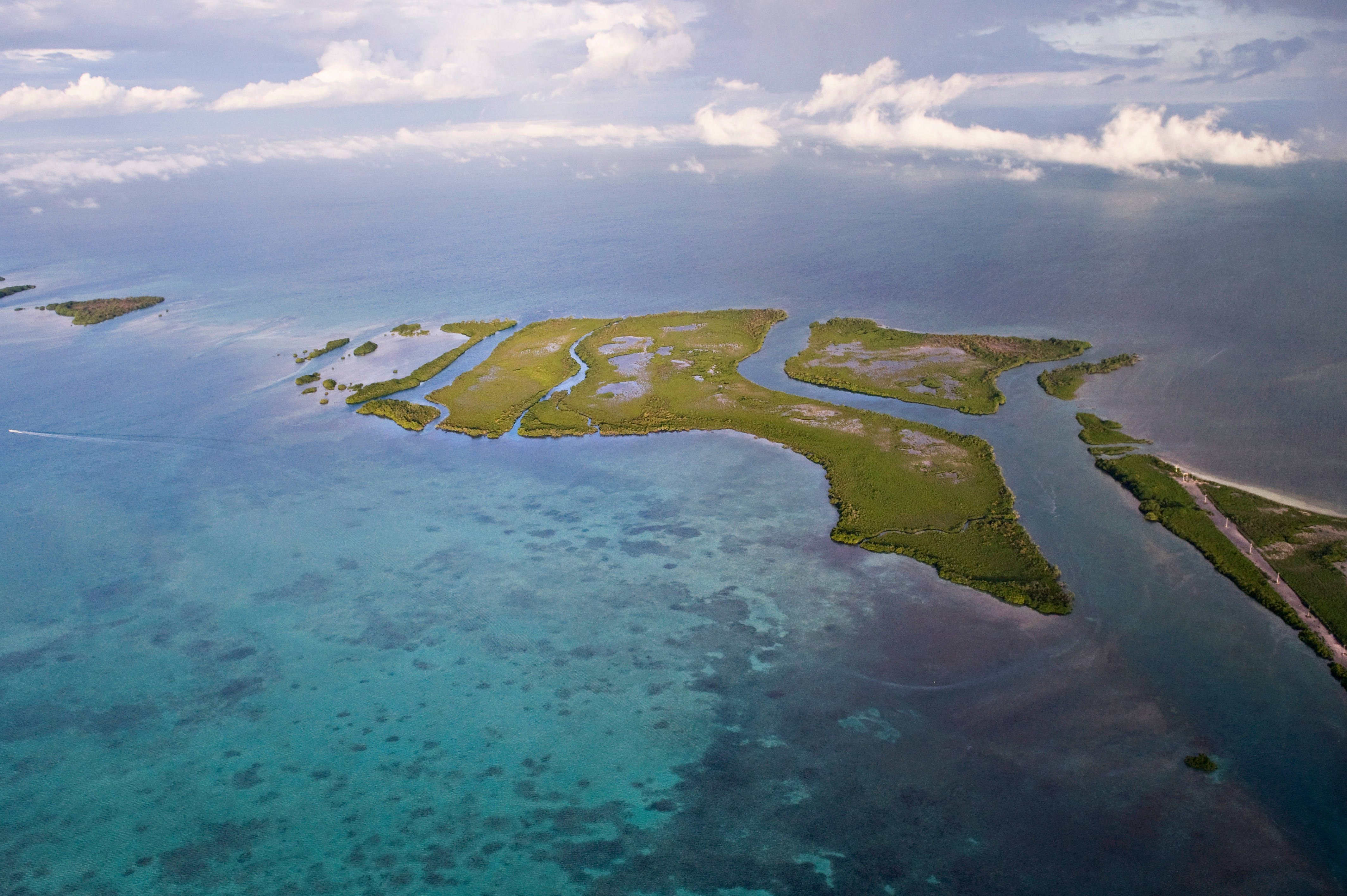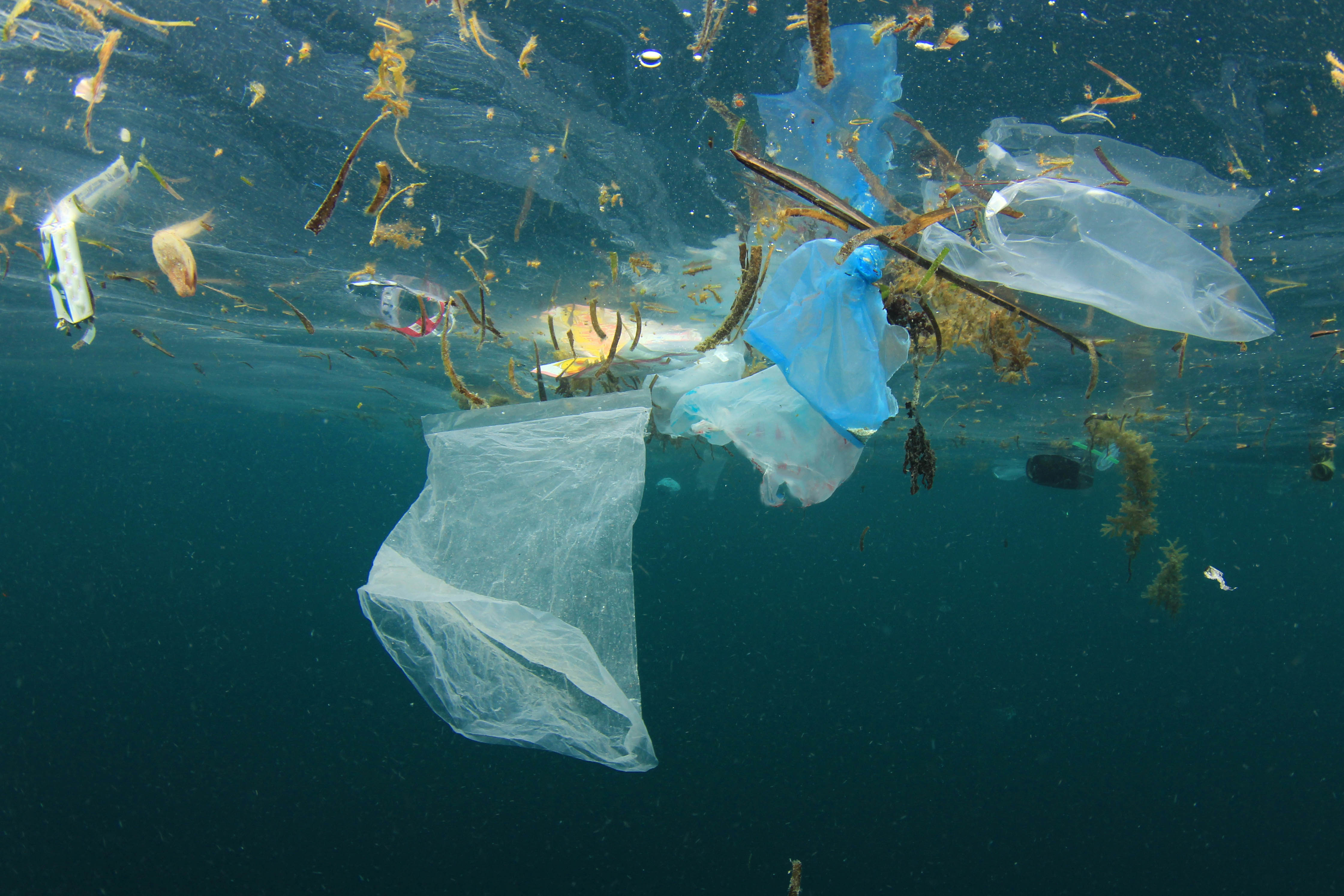The longer days and sunnier skies are signaling the arrival of beach vacation season. If you, like many, love to spend time by the ocean, it’s time to appreciate all that our oceans do for us every day, especially on World Oceans Day.

Aerial view of mangroves flying back to Belize City from Ambergris Caye, Belize, Central America. ©Antonio Busiello/WWF-US
Covering more than two-thirds of our planet, oceans regulate our climate, produce half the oxygen we breathe, fuel the water cycle that produces freshwater, support economic livelihoods for communities around the world, and provide food for nearly 3 billion people. For everything our oceans do for us it’s important we protect this vital resource a lot better.
It may be shocking to hear but 8.8 million tons of plastic enter the ocean every year. Items such as packaging serve many essential functions that provide social, economic, and environmental benefits however the challenge is to foster a system in which plastic packaging is properly and responsibly disposed. And there are many other products you use every day, like sunscreen, that are doing more damage to our oceans than you may think.

Plastic ocean pollution – plastic bag and rubbish floating in ocean. © Shutterstock / Rich Carey / WWF
Here are a few simple things to do in your everyday life to keep our oceans healthy:
- Skip the straw- Do you really need a straw in your drink? 500 million straws a day are used in the US alone and like many single-use plastics, many of those straws end up on our coasts and in our ocean. Skip the straw or if you really can’t live without one replace the plastic with glass or metal straws. Learn more how straws are having a big impact of our environment.
- Leave a comment- hotels listen to their guests and take comments seriously. If you notice the place you’re staying doesn’t have recycling bins in your room leave a comment card or online review to help them improve your stay.
- Reusable travel items- look for reusable water bottles, reusable cosmetic containers for shampoos and soaps, and reusable bags. These items will help keep plastic out of our oceans and help save your money for another trip.
- Look it up– proper recycling differs in different areas. Recycling system may be different then what you’re use to, but a simple web search will help you keep the places you’re staying beautiful for your return. You can also pack out the trash you accumulate. If there are no good recycling options pack your recyclable items until you are able to dispose of them properly.
- Pick it up- when on the board walk or beach pick up any loose trash you see. Be careful not to place it back in an overflowing trashcan as it may blow right back where you found it. Waste travels far in the ocean.
- Avoid the chemicals- Some common sunscreens and soaps contain harmful chemicals, such as oxybenzone, that can be absorbed by the ocean’s fragile coral reefs systems and contribute to coral bleaching, plus they aren’t good for your body to absorb either. Purchase reef-friendly products, such as biodegradable or mineral-based sunscreens, shampoo, and soaps. Or think about switching to protective clothing, like rash guards and wet suits, which dermatologists say are just as effective as sunscreen. Watch this video to learn more.
While you are doing your part, World Wildlife Fund (WWF) is working hard to keep our oceans healthy through many projects. Since 2012, WWF has been a member of the Trash Free Sea Alliance, a coalition of business, science, and conservation leaders dedicated to finding solutions to ocean pollution.

In coastal Kenya WWF is helping to reduce human impact on marine turtles by monitoring and protecting nest sites and changing damaging fishing practices. © Jonathan Caramanus / Green Renaissance / WWF-UK
By Lani Chevat, WWF



























It may be shocking to hear but 8.8 million tons of plastic enter the ocean every year. Items such as packaging serve many essential functions that provide social, economic, and environmental benefits however the challenge is to foster a system in which plastic packaging is properly and responsibly disposed